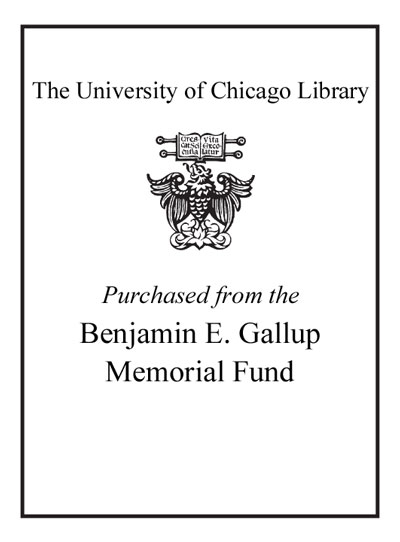Review by Choice Review
In this long-awaited study of the American Whigs, Holt (Univ. of Virginia) presents the results of some two decades of inquiry into the party home of Daniel Webster, Henry Clay, and Abraham Lincoln. Emphasizing the dynamics of intraparty as well as interparty competition, the political structures of federalism, and his rather familiar arguments about the relationship between the collapse of the Second Party System and the coming of the American Civil War, Holt's narrative reflects something of a return to old-fashioned political history. The work is lightly seasoned by an awareness of the innovations offered by literature on voting behavior and ideology, less so by attention paid to policy and governance or the party's legacy for the American political tradition. Steeped in extensive archival research, this detailed recounting of the policies and practices of Whig politicos and the party's achievements, shortcomings, and eventual demise will long stand as definitive. A magnificent resource for scholars, Holt's weighty tome will prove essential reading for political historians, although it may tax the patience of the more casual reader. Graduate, faculty. B. D. Simpson Arizona State University
Copyright American Library Association, used with permission.
Review by Library Journal Review
In 1834, opponents of Andrew Jackson organized the Whig Party. In all, four Whigs sat in the White HouseÄHarrison, Tyler, Taylor, and FillmoreÄwhile leaders such as Henry Clay and Daniel Webster failed to capture that prize, contending with Democrats over tariffs, banks, internal improvements, territorial expansion, and, ultimately, slavery until the party's demise in the 1850s. The University of Virginia's Holt, author of Political Parties and American Political Development (LJ 6/1/92), details how great national issues intersected with lesser matters like control of patronage and the ambitions of persons and factions as well as with local and state-level concerns to shape the history of the Whigs. Although only dedicated readers will complete the trek through these 1000 dense pages, this book caps the career of a prominent political historian and will long be a staple for academic library collections in history and political science.ÄRobert F. Nardini, North Chichester, NH (c) Copyright 2010. Library Journals LLC, a wholly owned subsidiary of Media Source, Inc. No redistribution permitted.
(c) Copyright Library Journals LLC, a wholly owned subsidiary of Media Source, Inc. No redistribution permitted.
Review by Kirkus Book Review
In a massively researched survey, Holt (American History/Univ. of Virginia) painstakingly details the career of an odd political party that flourished, then vanished in the three decades before the Civil War. An unlikely union of Southern states' rights enthusiasts, Anti-Masonic Party members, supporters of the Bank of the United States, and moderate pro-development republicans hobbled together by opponents of the populist nationalism of Andrew Jackson, the Whig Party became the party of such giants as Henry Clay, Daniel Webster, and Abraham Lincoln, but also of such eminently forgettable figures as Thurlow Weed and Millard Fillmore. Because state and local elections were of comprehensive importance to national politicians in the 19th century, Holt delves in minutest detail into electoral developments in states and localities. Surveying the impacts of local conditions on national elections, Holt tries to show that the Whig Party's development hinged on a variety of factors'its competitive relationship with the Democratic Party, which had local, state, and national dimensions, and the internal divisions of Whigs (which ultimately destroyed the party) as the country's sectional crisis split them into factions were the most dynamic of these. The disparate nature of the Whigs' ideology in different sections prevented them from developing a coherent national program, though they did win the White House with military heroes in issue-free campaigns in 1840 (William Henry Harrison) and 1848 (Zachary Taylor). Holt shows that the Whigs were consistent in their goal of attempting to unite the nation's sections and to find a compromise on the issue of slavery, and represented the country's last failed hope of avoiding civil war. Of evident importance to specialists, but because of its massive size and detailed emphasis on the minutiae of state and local events, inaccessible to all but the hardiest general reader.
Copyright (c) Kirkus Reviews, used with permission.
Review by Choice Review
Review by Library Journal Review
Review by Kirkus Book Review

